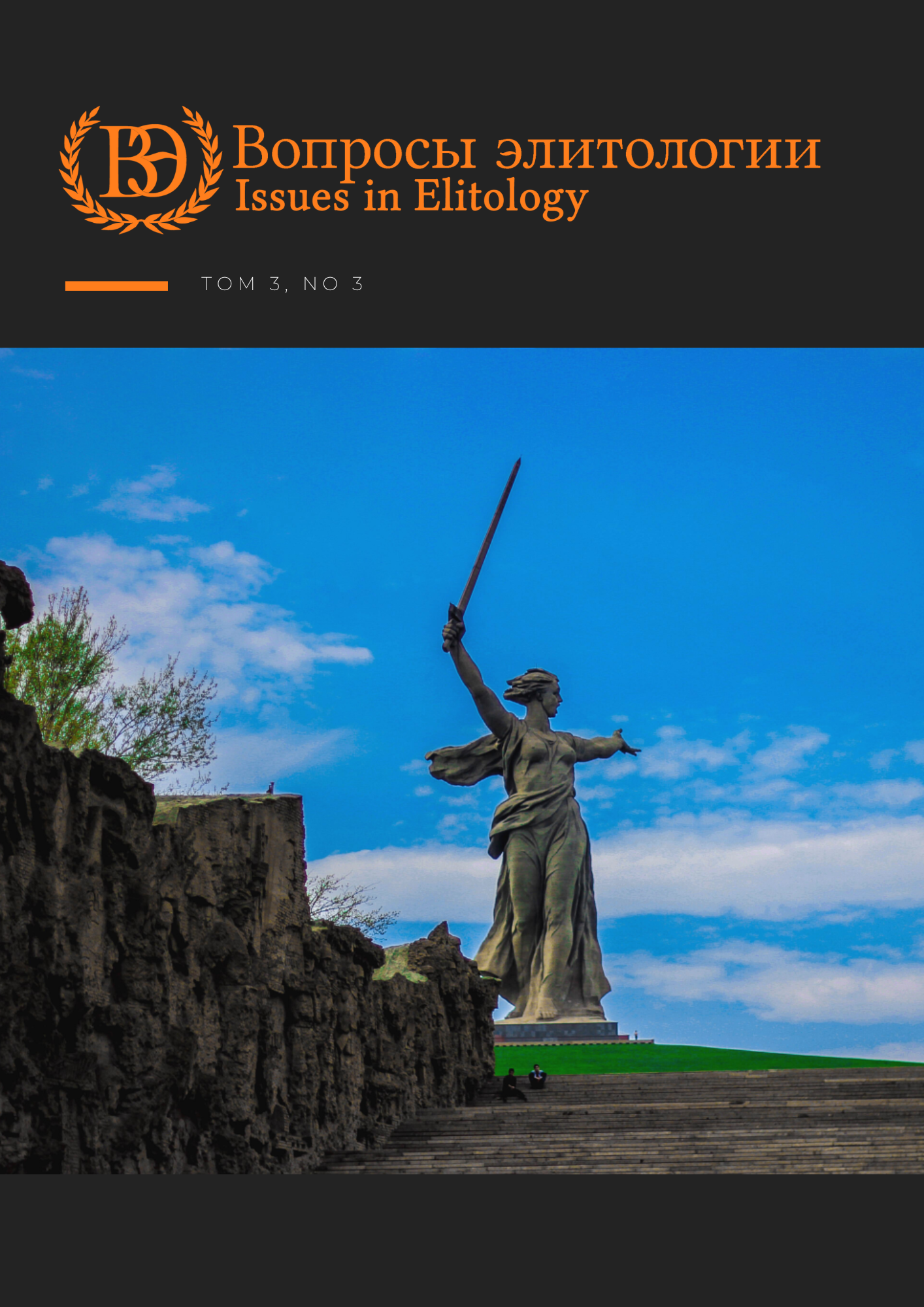Аннотация
Британские политические элиты считались образцом классического поведения, эталоном успешной практики, вершиной дипломатической службы и т.д., и т.п. Но со временем крушения проекта под названием «Британская империя» в мире многое изменилось. Изменились не в лучшую сторону и сами британские элиты. В настоящее время они переживают самое критическое за всю свою многовековую историю состояние, чему есть целая система объективных причин. Но при этом источник своего упадка британские элиты по-прежнему ищут на стороне, обвиняя других (в первую очередь, Россию) в злонамеренном к себе отношении.
Кризис управления британских политических элит проявляется в системном сбое стратегического планирования, когда политической бюрократии не удается на практике реализовать свои исходные замыслы. Для британцев и всего англосаксонского мира наступили непростые времена, связанные с кризисом и разрушением их мировой гегемонии в условиях монополярного миропорядка. Настоящая работа посвящена анализу современного состояния британских политических элит, существующих у них культурно-исторических традиций и ментальных комплексов неполноценности, вносящих в их профессиональную деятельность откровенно деструктивный характер.
Литература
'A load of nonsense’: readers on Johnson’s speech. (2019). https://www.theguardian.com/politics/2019/oct/02/a-load-of-nonsense-readers-on-johnsons-speech
Best, H. (2010). Associated Rivals: Antagonism and Cooperation in the German Political Elite. New Theoretical and Comparative Perspectives. doi: 10.1163/ej.9789004179394.i-230.38
Beware Boris Johnson: The Power of a Cunning Clown. (2017). https://www.thedailybeast.com/beware-boris-johnson-the-power-of-a-cunning-clown
Blondel, J. (2007). Political Elites. В J. Blondel & F. Muller-Rommel (Ed.), - The Oxford Handbook of Political Behavior. OUP. doi: 10.1093/oxfordhb/9780199270125.003.0044
Bolzen. (2022). Clown nation. Europe’s view of Britain under Johnson. The New European Front Cover.
Boris Johnson and the Years of a Clown. (2016). https://www.nytimes.com/2016/07/01/opinion/boris-johnson-the-years-of-a-clown.html
Boris Johnson called gay men 'tank-topped bumboys' and black people 'piccaninnies' with 'watermelon smiles'. (2019). https://www.businessinsider.com/boris-johnson-record-sexist-homophobic-and-racist-comments-bumboys-piccaninnies-2019-6
Boris Johnson is the ultimate purveyor of fake news. (2020). https://www.theguardian.com/politics/2020/feb/23/boris-johnson-is-the-ultimate-purveyor-of-fake-news
Boris Johnson plays a clown. He’s really just a power-hungry nihilist. (2019). .https://www.washingtonpost.com/outlook/2019/07/24/boris-johnson-plays-clown-hes-really-just-power-hungry-nihilist/
Boris Johnson: The Dangerous Clown. (2016). https://strategic-culture.org/news/2016/10/23/boris-johnson-dangerous-clown/
Boulding, K. (2017). Conflict and protection: General theory. Journal of Conflict Resolution, 11, 136–150.
Cheng, M. (2022). The Ukraine Crisis: Causes, Conundrum and Consequences. Journal of Social and Political Sciences, 5 (2). Doi: 10.31014/aior.1991.05.02.350
Cotta, M. (2008). Democratic Representation in Europe (M. Cotta & H. Best, 1st ed.). Oxford University Press.
Davis, A. (2003). Whither Mass Media and Power? Evidence for a Critical Elite Theory Alternative. Media, Culture & Society, 25(5), 669–690. doi: 10.1177/01634437030255006
Dickson М., Gewirtz Sh., & Power S. (2004). Unravelling a «spun» policy: A case study of the constitutive role of «spin» in the education policy process. Journal of Education Policy, 19, 3. doi: 10.1080/0268093042000207647
Dogan, M. (1989). The Pathways to Power (1st.). Westview Press.
Dogan, M. (2003). Elite Configurations at the Apex of Power (1st.). Brill. Doi: 10.1163/9789047401742
Domhoff, G. W. (1979). The Powers That Be. Processes of Ruling Class Domination in America (2ed.). Vintage Books.
Domhoff, G. W. (2006). Who Rules America?: Power and Politics, and Social Change (6th.). McGraw-Hill.
Dunleavy P. & O.’Leary B. (1987). Theories of the State. Macmillan Education. doi: 10.1007/978-1-349-18665-5
Edgerton, D. (2006). Warfare State. Britain, 1920–1970. University Press.
Elias N. & Scotson J. L. (1994). The Established and the Outsiders. A Sociological Enquiry into Community Problems. Sage. Doi: 10.4135/9781446222126
Femia, J. (2009). Political Leadership in Liberal and Democratic Theory (J. Femia, A. Korosenyi, & G. Slomp, 1st.ed). Imprint Academic.
Femia, J. V. (2002). Against the Masses. Varieties of Anti-Democratic Thought since the French Revolution (1th.). Oxford University Press.
Freeman, K. D. (2019). Economic Warfare Risks and Responses. Analysis of Twenty-First Century Risks in light of the Recent Market Collapse. Cross Consulting and Services LLC.
Graber, D. (2002). Mass Media and American Politics. CQ Press.
Higley J. & Burton M. (2006). Elite foundations of liberal democracy (1st edition). Rowman & Littlefield.
Higley J. & Moor G. (2001). Political Elite Studies at the Year 2000: Introduction. International Review of Sociology, 11(2), 175–180. doi: 10.1080/713674036
Higley, J. (2000). Elite Theory in Political Sociology. CiteSeerX. Retrieved from Study Lib website:https://studylib.net/doc/8914356/elite-theory-in-political-sociology-john-higley
Johnson suggested that Zelensky create a military alliance against Russia. (2022). https://news.mail.ru/politics/51494087/?frommail=1
Just How Crazy Is Boris Johnson? (2019). https://www.newyorker.com/news/letter-from-the-uk/just-how-crazy-is-boris-johnson
Kavanagh D. & Seldon A. (2005). The Blair effect 2001-5. Cambridge University Press. Doi: 10.1017/CBO9780511490804
Larocca, R. (2004). Strategic Diversion in Political Communication. The Journal of Politics, 66(2), 469–491. doi: 10.1111/j.1468-2508.2004.00160.x
Matthew, E. (2022). The New Great Game and the New Great Gamers: Disciples of Kipling and Mackinder. Central Asian Survey.
Mccormack A. & Useem M. (1981). The Dominant Segment of the British Business Elite—Sociology (V. 15, issue 3, сс. 381–406).
Mills C.W. (1956). The power elite. Oxford University Press.
Milner, M. (2015). Elites. A General Model (1st ed.). Polity Press.
Monroe, A. D. (1979). Consistency between Public Preferences and National Policy Decisions. - American Politics Quarterly. doi: 10.1177/1532673X7900700101
Monroe, A. D. (1993). Public Opinion and Public Policy 1980– 1993. Public Opinion Quarterly.
Page, B. I. (1983). Effects of Public Opinion on Policy. - American Political Science Review, 77(1). doi: 10.2307/1956018
Pakulski, J. (2012). Toward Leader Democracy (J. Pakulski & A. Korosenyi, ed.). Anthem Press. doi: 10.7135/UPO9781843317715
Pareto, V. (1963). The Mind and Society: A Treatise on General (Sociology.1st). Dover.
Pilger, J. (2005). By voting for Blair, you will walk over the corpses of at least 100,000 people, most of them innocent, slaughtered in defiance of international law. New Statesman.
Putnam, R. D. (1976). The Comparative Study of Political Elites (1st ed.). Prentice-Hall.
Schumpeter, J. A. (2013). Capitalism, Socialism and Democracy (2th ed.). Routledge. doi: 10.4324/9780203202050
Scott, J. (2003). Transformations in the British Economic Elite—Comparative Sociology 2(1). doi: 10.1163/156913303100418735
Scott, J. (2008). Modes of Power and the Re-conceptualization of Elites. Remembering Elites. Sociological Review, 56(1). doi: 10.1111/j.1467-954X.2008.00760.x
Searing D.D., Jacoby W.G., & Tyner A.H. (2019). The Endurance of Politicians’ Values Over Four Decades: A Panel Study. American Political Science Review, 113(1), 226–241. Doi: 10.1017/S0003055418000692
Strobe, T. (1997). A Farewell to Flashman: American Policy in the Caucasus and Central Asia. Address at the Johns Hopkins School of Advanced International Studies.
The clown king: how Boris Johnson made it by playing the fool. (2021). https://www.theguardian.com/news/2021/mar/18/all-hail-the-clown-king-how-boris-johnson-made-it-by-playing-the-fool
The death of “Boris” the clown. (2022). https://www.newstatesman.com/long-reads/2022/07/death-boris-johnson-clown
Zapf, W. (1965). Wandlungen der deutschen Elite (1st ed.). Piper.

Это произведение доступно по лицензии Creative Commons «Attribution» («Атрибуция») 4.0 Всемирная.


